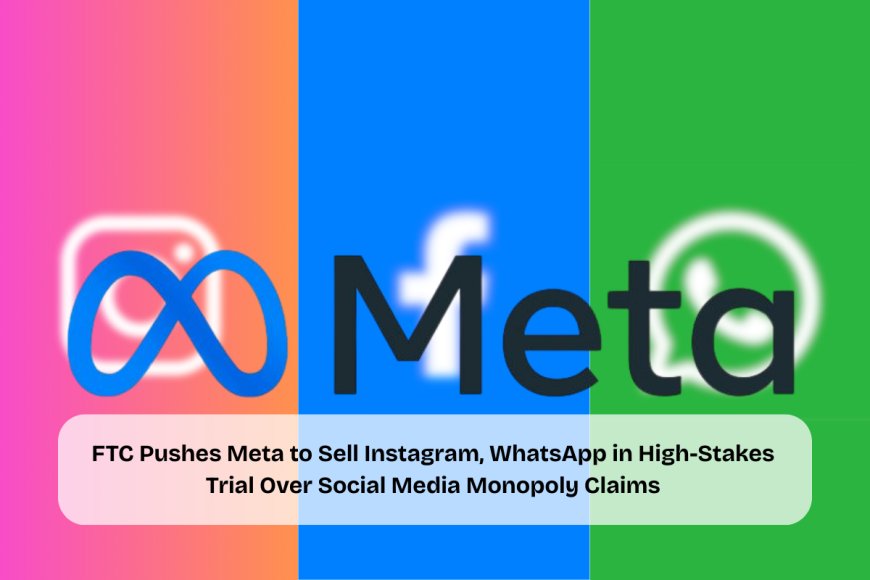Zuckerberg Defends Meta at Antitrust Trial Over Instagram, WhatsApp Acquisitions Amid Monopoly Allegations by FTC
Meta CEO Mark Zuckerberg testified in a major U.S. antitrust trial over claims it bought Instagram, WhatsApp to suppress competition.

Meta's CEO, Mark Zuckerberg, testified in a high-stakes antitrust trial in Washington, justifying the company's takeover of Instagram and WhatsApp. The US Federal Trade Commission (FTC) believes Meta purchased the two networks to prevent future competitors and retain social media dominance. The trial may push Meta to restructure or sell off Instagram and WhatsApp.
Zuckerberg patiently answered questions, saying that the purchases were intended to improve user experience rather than squash competitors. He claimed that Meta misjudged how people interact online, explaining that users increasingly choose public content over personal updates from friends.
Zuckerberg claimed that only 20% of Facebook content and 10% of Instagram content are now shared by users' friends, while more individuals follow profiles based on their interests.
The FTC stated to earlier messages in which Zuckerberg indicated concern that Instagram and WhatsApp could become competitors. However, Meta claims that today's competition is significant, particularly from TikTok, YouTube, and Apple's messaging app. Meta claims that the increased traffic to its platforms during TikTok's U.S. outage demonstrates this competitiveness.
If the FTC wins it must demonstrate that selling off Instagram or WhatsApp would restore fair competition. Losing Instagram might be devastating for Meta, which is expected to earn more than $37 billion in ad revenue in the United States this year, according to EMarketer.
WhatsApp, while less profitable, is Meta's most popular app and the foundation of its future corporate messaging strategy.
This case is part of a larger antitrust review against Big Tech, which began under former President Donald Trump. Amazon, Apple, and Google are also under review. The trial could last until July and impact the future of tech rivalry in the United States.
This article is based on information from Reuters







